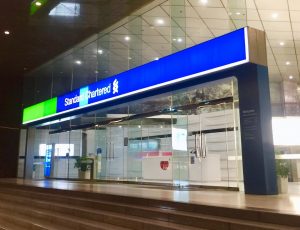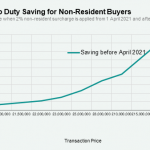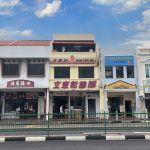DBS and Standard Chartered lead industry workgroup to develop Trade Finance Registry pilot to enhance trade transparency
- Trade Finance Registry pilot development of proof-of-concept (POC) supported by 14 banks over last three months
- Trade Finance Registry pilot is endorsed by The Association Banks of Singapore and supported by Enterprise Singapore
To enhance lending practices and improve transparency in commodity trade, DBS and Standard Chartered jointly led a workgroup of 12 other banks to create and conduct a digital Trade Finance Registry (TFR) POC.
Supported by Enterprise Singapore (ESG) and endorsed by The Association Banks of Singapore (ABS), the TFR POC aims to be an industry utility by serving as a secure central database for the banking industry to access records of trade transactions financed across banks in Singapore. This mitigates against duplicate financing from different bank lenders for the same trade inventory, leading to greater trust and confidence among banks and traders alike.
Mr Sriram Muthukrishnan, Global Head of Trade Product Management, DBS Bank, said that the successful development of the POC within a few short months exemplifies the immense potential of an industry coming together to co-create solutions that enhances the transparency and security of lending practices, and mitigates against the risk of trade fraud. “Building greater resilience in the industry ecosystem is even more important today as businesses and economies continue to deal with the impact of prolonged trade disruptions.
“The Trade Finance Registry marks an important step towards fostering greater transparency through collaboration and strengthening lending practices in Singapore’s banking sector while ensuring a secure operating environment for the industry as we progress towards an increasingly digital trade future.”
DBS is a leading financial services group in Asia with a presence in 18 markets. Headquartered and listed in Singapore, DBS is in the three key Asian axes of growth: Greater China, Southeast Asia and South Asia. The bank’s “AA-” and “Aa1” credit ratings are among the highest in the world.

Mr Sam Mathew, Global Head, Documentary Trade, Standard Chartered, said, “Driving sustainable trade finance growth and managing risks are core to our strategy. We are pleased to have co-led on this industry-first initiative with our industry peers and dltledgers, and together create a working proof of concept trade registry that can enable trade banks in detecting potential duplicate financing of the same cargoes. Having delivered this in record time from concept to testing, it is testament to the true collaboration between all parties and we hope to further develop the registry alongside ABS.”
Standard Chartered Bank in Singapore is part of an international banking group, with more than 150 years of history in some of the world’s most dynamic markets. Its purpose is to drive commerce and prosperity through a unique diversity, and its heritage and values are expressed in its brand promise, Here for good.
Developed on a blockchain network supported by technology provider dltledgers, DBS and Standard Chartered scoped and developed the POC in the span of three months, with the support of 12 other banks. The participating banks were ABN AMRO, ANZ, CIMB, Deutsche Bank, ICICI, Lloyds, Maybank, Natixis, OCBC, Rabobank, SMBC and UOB.
Mr Satvinder Singh, Assistant Chief Executive Officer, Enterprise Singapore, said, “By working with dltledgers, a local company specialising in blockchain technology, the industry workgroup was able to accelerate the development of a neutral and secure platform to ease the flow of information between banks and prevent duplicate financing. The collaboration will strengthen banks’ risk management capabilities and enhance confidence in the finance and trade sectors. We welcome more industry participants to be part of this collaborative effort in developing innovative solutions for the industry to reaffirm Singapore’s status as a trade and finance hub.”
In today’s context, banks are able to conduct such validations only within a single customer entity or across their individual banking network, with no view of what other banks have financed or undertaken payment obligation against. This information asymmetry is a key gap that can only be addressed with a TFR that facilitates collaboration across industry players and government agencies.
Ms Ho Hern Shin, Assistant Managing Director (Banking and Insurance), Monetary Authority of Singapore, said, “A digital trade registry strengthens trade financing banks’ ability to avoid duplicate financing, and facilitates more sustained credit flow in trade financing. MAS is glad to see the banking industry coming together, collaborating with government agencies and technology partners, on this important initiative.”
Following the completion of the POC, DBS and Standard Chartered will work with ABS to implement the TFR as an industry utility to enhance trade financing practices within Singapore, before expanding it globally to cover major trade corridors at a later stage.
Going forward, ABS will manage the TFR, supported by a Standing Committee represented by the ABS Council member banks. Three Working Groups of banks will be set up to jointly lead the governance, technical development and business scope of the project. ABS will be inviting all banks to join the TFR as members.
Mrs Ong-Ang Ai Boon, Director, The Association of Banks in Singapore, said, “This will be the first digital Trade Finance Registry set up by ABS in Singapore. Having successfully established its associate company Credit Bureau Singapore in 2002, we welcome the opportunity to set up this industry utility to enhance the risk assessment and management capability of trade financing banks.”






